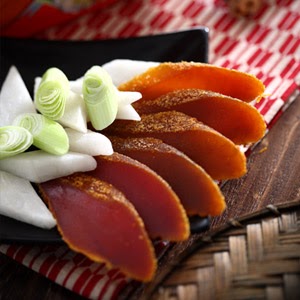The exeperience of Ling Raines runs the gamut of business development and negotiations from Education to Construction and Development, Agriculture and Tourism
Please click on header below for further details
Born in Japan – where education is considered the most important matter for children, parents do whatever they can to offer the best possible chance to their children – Ling is particularly interested in the field of education.
 Ling is a graduate of Keio Gijuku University considered, arguably, one of the best universities in Japan, and holds MBA and Master of Finance degrees from Bond University on the Gold Coast.
Ling is a graduate of Keio Gijuku University considered, arguably, one of the best universities in Japan, and holds MBA and Master of Finance degrees from Bond University on the Gold Coast.
After obtaining the MBA degree from Bond University, Ling was appointed as the Overseas Marketing Director of Bond University and Bond University English Language Institute and worked from the campus for 2 years. She was responsible for recruiting students from overseas countries, but, due to her background, she was heavily involved with handling matters that had to do with Japan. In other words, she was the person all the Japanese students, parents and teachers would come to discuss whatever problems that had to be solved. While she was in the position of the Overseas Marketing Director, Bond University received the Export Award.
When Ling first arrived Australia, it was her strong desire to make contribution to improve English language standard of the Japanese students. Through her involvement with countless business negotiations between Japanese companies and foreign companies and, later, as a student at Bond University, she cannot help but saying that the English level of the Japanese people has to be improved. Of course, language is not the only thing that is important, but, how do you expect to have a smooth communication with English speaking people if you cannot communicate in English? Ling has kept saying to people, “Whether you can speak English or not has no relationship to your IQ level. If you are born in the English speaking country, you will speak English.” It was an extremely frustrating experience to see a brilliant Japanese student who could get a very high score at the exam could hardly speak in the classroom when she was a student at Bond University.
Ling believes more and more Japanese students and business people will choose Australia as a study destination to improve English. Closer proximity to Japan without huge time lag makes Australia an easier destination for English study. Also, while there are some limited number of unfortunate incidents, Australia is still a much safer place for students to study. Air is clean and people are friendly. Through the experience at Bond University as the Overseas Marketing Director,
Ling knows that Japanese students, and Japanese people are very well accepted by the local Australians as a very welcomed guest.
Ling was involved with Japanese and local developers who were going to develop various projects on the Gold Coast.
For the Japanese companies, Daikyo was the first company she had an exposure to, followed by Shinko who developed Hope Island Resort, Nara Kensetsu and others. Smaller Gold Coast company who wanted to build a high rise residential building engaged Ling to approach the Japanese market, and later, started a joint venture with a Japanese company which was planning to expand its operation into Australia.
Ling had a long association with a resort company from Tokyo which wanted to develop hotel and golf course on the Gold Coast. A Japanese company which bought a chateau in France also wanted to start development on the Gold Coast, and asked Ling to investigate the MBA degree at Bond University prior to sending their employees to the course. This triggered Ling’s interest in studying for the MBA herself at Bond University.
Due to collapse of the bubble economy, almost all these Japanese companies left Australia. Many individual investors also sold properties at much reduced prices, and they have held very negative impression on investing in Australia for many years.
Now, with the issue of decreasing population together with increase of aged population, many companies in Japan believe their future exists in expansion into foreign countries.
This, in spite of past negative experience, has made the Japanese companies to reconsider Australia as the relatively safe haven for future survival, and very positive move has already started.
People in Japan know that Australia is a clean and green country and the place to source safe and good food items, not just beef.
 While Ling was operating in Tokyo as an international business consultant, most of the foreign companies she assisted were in the food related industry. Beef, crayfish, onion, wine, cheese, muesli bar, Karasumi (salted and dried mullet roe), dried fruits, chocolate, olive oil, etc.
While Ling was operating in Tokyo as an international business consultant, most of the foreign companies she assisted were in the food related industry. Beef, crayfish, onion, wine, cheese, muesli bar, Karasumi (salted and dried mullet roe), dried fruits, chocolate, olive oil, etc.
There should be more Australian food items, both fresh and processed, introduced to the Japanese market. One good example is Mango, while only small amount has been exported to Japan at a premium price, the Japanese people should be able to enjoy the beautiful fruit at a much lower price.
It is the fact that Japan is not an easy market to get into compared to other countries because of distribution system, language barrier and other obstacles. However, once you have established a trusting business relationship, it is the most rewarding party to do business with.
A family company in Brisbane which developed a technique to produce high quality Karasumi with an assistance of Ling’s company kept exporting Karasumi to Japan for more than 20 years. At one stage, one of the large Japanese companies which was in flour milling, wanted to produce a ready- to eat packaged food, Karasumi Spaghetti. They checked quality of Karasumi from 36 companies in the world, and chose this Brisbane company’s product. Then they had to find another company who was producing powder from Karasumi, and chose a company in France. For almost one year, Ling was in a constant communication with the French company, including visiting the factory in Paris, and Brisbane company to assist the Japanese company. After lots of hard work, Karasumi Spaghetti was created, but, unfortunately, the end product was not well accepted in the Japanese marekt.
Another example of unfortunate result was the Australian meat pie created for Japan. A Japanese company and a pie company on the Gold Coast together invested lots of money, time and efforts to create an Australian meat pie that would be, hopefully, acceptable by the Japanese consumers, but, it did not go anywhere.
There should be many ways to combine high quality Australian produce and Japanese know how/technology to create foods that everyone wants to enjoy.

